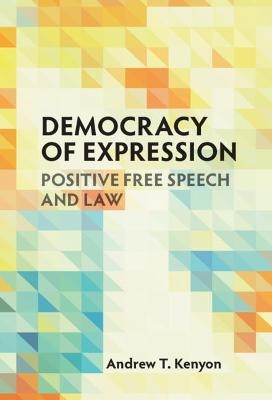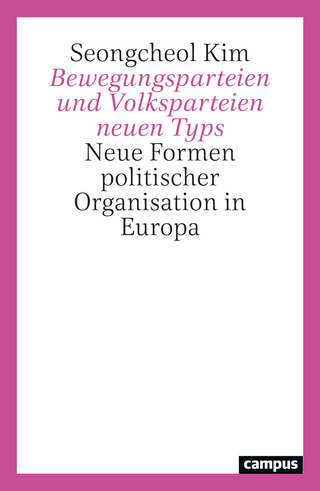
Democracy of Expression
Positive Free Speech and Law
Seiten
2021
Cambridge University Press (Verlag)
978-1-108-48616-3 (ISBN)
Cambridge University Press (Verlag)
978-1-108-48616-3 (ISBN)
Free speech has positive dimensions of enablement and negative dimensions of non-restraint. Both need protection in democracies, but free speech's positive dimensions are too often overlooked. Drawing from media studies, political theory, and free speech case law, Kenyon shows how positive dimensions of free speech could be imagined and pursued.
Free speech has positive dimensions of enablement and negative dimensions of non-restraint, both of which require protection for democracy to have substantial communicative legitimacy. In Democracy of Expression, Andrew Kenyon explores this need for sustained plural public speech linked with positive communicative freedom. Drawing on sources from media studies, human rights, political theory, free speech theory and case law, Kenyon shows how positive dimensions of free speech could be imagined and pursued. While recognising that democratic governments face challenges of public communication and free speech that cannot be easily solved, Kenyon argues that understanding the nature of these challenges (including the value of positive free speech) at least makes possible a democracy of expression in which society has a voice, formulates judgments, and makes effective claims of government. In this groundbreaking work, Kenyon not only reframes how we conceptualize free speech, but also provides a roadmap for reform.
Free speech has positive dimensions of enablement and negative dimensions of non-restraint, both of which require protection for democracy to have substantial communicative legitimacy. In Democracy of Expression, Andrew Kenyon explores this need for sustained plural public speech linked with positive communicative freedom. Drawing on sources from media studies, human rights, political theory, free speech theory and case law, Kenyon shows how positive dimensions of free speech could be imagined and pursued. While recognising that democratic governments face challenges of public communication and free speech that cannot be easily solved, Kenyon argues that understanding the nature of these challenges (including the value of positive free speech) at least makes possible a democracy of expression in which society has a voice, formulates judgments, and makes effective claims of government. In this groundbreaking work, Kenyon not only reframes how we conceptualize free speech, but also provides a roadmap for reform.
Andrew T. Kenyon is Professor at Melbourne Law School, University of Melbourne. He researches in comparative media law, drawing on media related disciplines as well as law. His publications include Comparative Defamation and Privacy Law (edited, 2016) and Positive Free Speech: Rationales, Methods and Implications (co-edited with Andrew Scott, 2020).
Preface; 1. Introduction; 2. Positive Free Speech from Media Studies and Law; 3. Positive Free Speech and Democracy; 4. Positive Human Rights and Political Freedom; 5. US Legal Writing on Positive Free Speech; 6. German Broadcasting Freedom; 7. French Freedom of Communication and Pluralism; 8. Framing Communicative Freedom; Index.
| Erscheinungsdatum | 07.06.2021 |
|---|---|
| Zusatzinfo | Worked examples or Exercises |
| Verlagsort | Cambridge |
| Sprache | englisch |
| Maße | 235 x 155 mm |
| Gewicht | 570 g |
| Themenwelt | Recht / Steuern ► Allgemeines / Lexika |
| Recht / Steuern ► EU / Internationales Recht | |
| Recht / Steuern ► Öffentliches Recht | |
| Sozialwissenschaften ► Politik / Verwaltung ► Vergleichende Politikwissenschaften | |
| ISBN-10 | 1-108-48616-9 / 1108486169 |
| ISBN-13 | 978-1-108-48616-3 / 9781108486163 |
| Zustand | Neuware |
| Informationen gemäß Produktsicherheitsverordnung (GPSR) | |
| Haben Sie eine Frage zum Produkt? |
Mehr entdecken
aus dem Bereich
aus dem Bereich
Geschichte, Parteistruktur, Radikalisierung
Buch | Softcover (2024)
UTB (Verlag)
CHF 38,95
neue Formen politischer Organisation in Europa
Buch | Softcover (2024)
Campus (Verlag)
CHF 82,55


